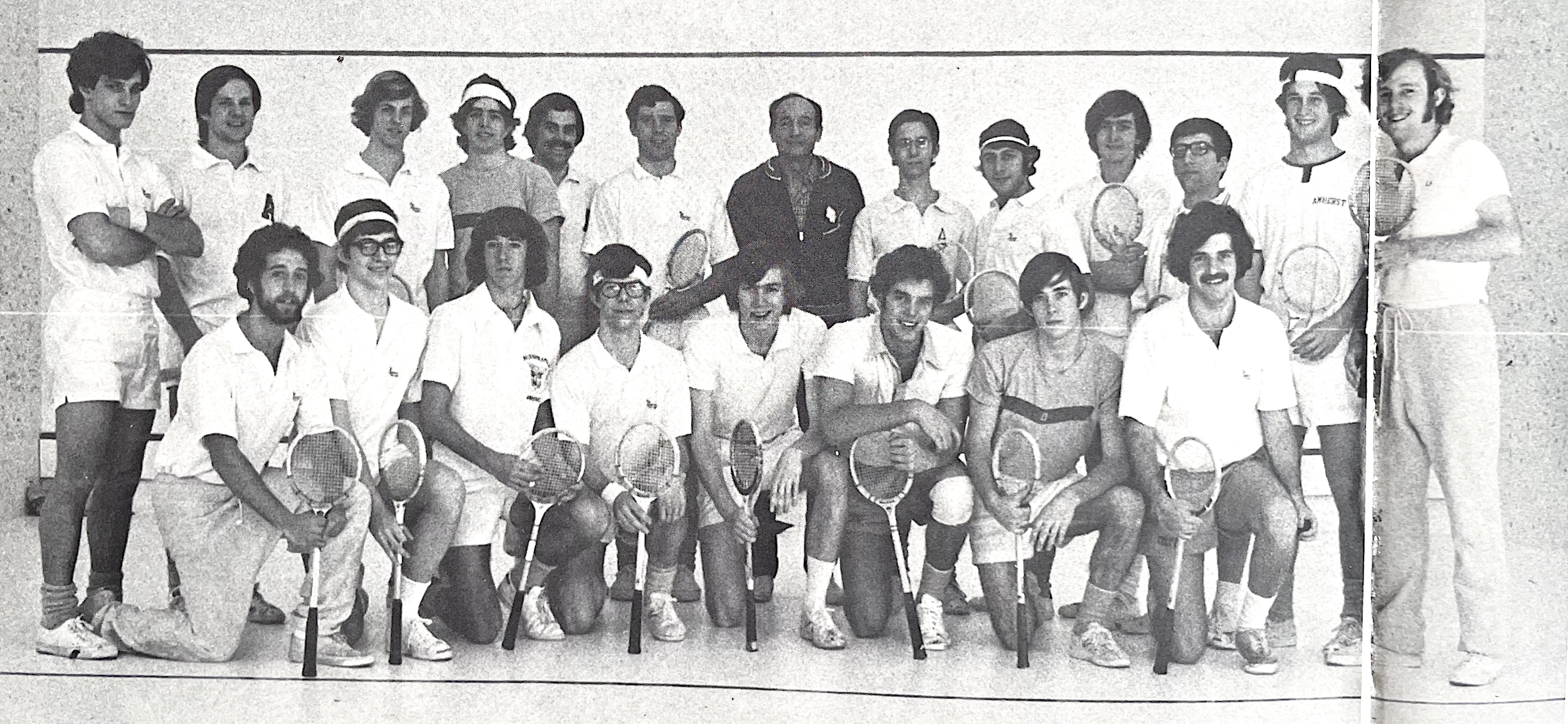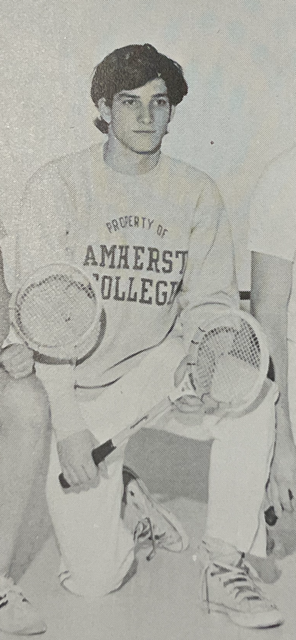Squash will set you free
Thinking back about the first time I saw squash being played at Davenport Courts, I remember the smell of rubber, the sounds of hard black rubber balls ricocheting against white wood walls, the racquets quite similar to but smaller than tennis racquets, the players in grey Amherst College sweat suits, the temperature colder than outside in winter, and steam rising from hot bodies. The sport seemed so aggressive and orderly at the same time. I wanted to try it.
Squash helped me feel more at home at Amherst. As a middle-class public school kid, I was naive to extreme wealth and poverty, with few connections in either direction. At Amherst, squash gave me a more intimate window into the upper class and access to people I wouldn’t normally associate with. And ever since college, squash has opened doors and offered easy introductions to a much wider range of people. I’ve been playing regularly everywhere it’s possible for over 50 years. And, over time with appreciation, squash has become my religion.
“You feel neither the past nor the future in the instant. Debts, taxes, domestic treason, foreign levy, nothing can touch you further. You have no other wish, no other thought, from the moment the game begins but that of striking the ball, placing it, of making it.” (Quote from A History of the Game by James Zug)
Squash helps me learn so many things, like how to get in shape, practice, show up early, think ahead, have a strategy in mind, adapt as I play, go beyond what I think I can do, cherish being in the moment, enjoy surprisingly good outcomes, show respect for my competitors, realize it is just a game, listen to my body, adjust my game over the years, be curious, learn from my losses, be positive, avoid negative thinking, and hang in there even when it looks hopeless. Squash helps me communicate, teach, learn, and get along with strangers, family, and friends. It guides me on aging, adapting, staying curious, and appreciating new perspectives.
So, I carry my “stick” wherever I go, enjoy finding squash courts, and play with people of all nationalities, religions, languages, and ages, regardless of biases. We can safely share time and purpose, find meaning, learn about each other, and usually, want to return for more. Squash is a universally shared language for those who have gained access to the sport.
I continue to refer to and share the wisdom of Ed Serues, the legendary teacher and coach who introduced me to the game and taught me for all four years at Amherst College.
“Summary: If you play a man in your class you should win or should be about dead by the time you lose. If you lose and feel anything left, you have not given it “all you’ve got”. If you play that way NOBODY can beat you quickly unless he outclasses you. No college team is going to outclass us. So let’s get in condition, get tough, and win or be half dead from trying, if we lose. A team that won’t be beat can’t be beat. There’s a lot in that old chestnut.” (Taken from Ed Serues’s mimeographed four-page memo To: The Varsity, Subject: How to Play a Squash Match)
I’m thankful for the access I had to squash at Amherst. And, I continue to appreciate what a privilege it is to play.


